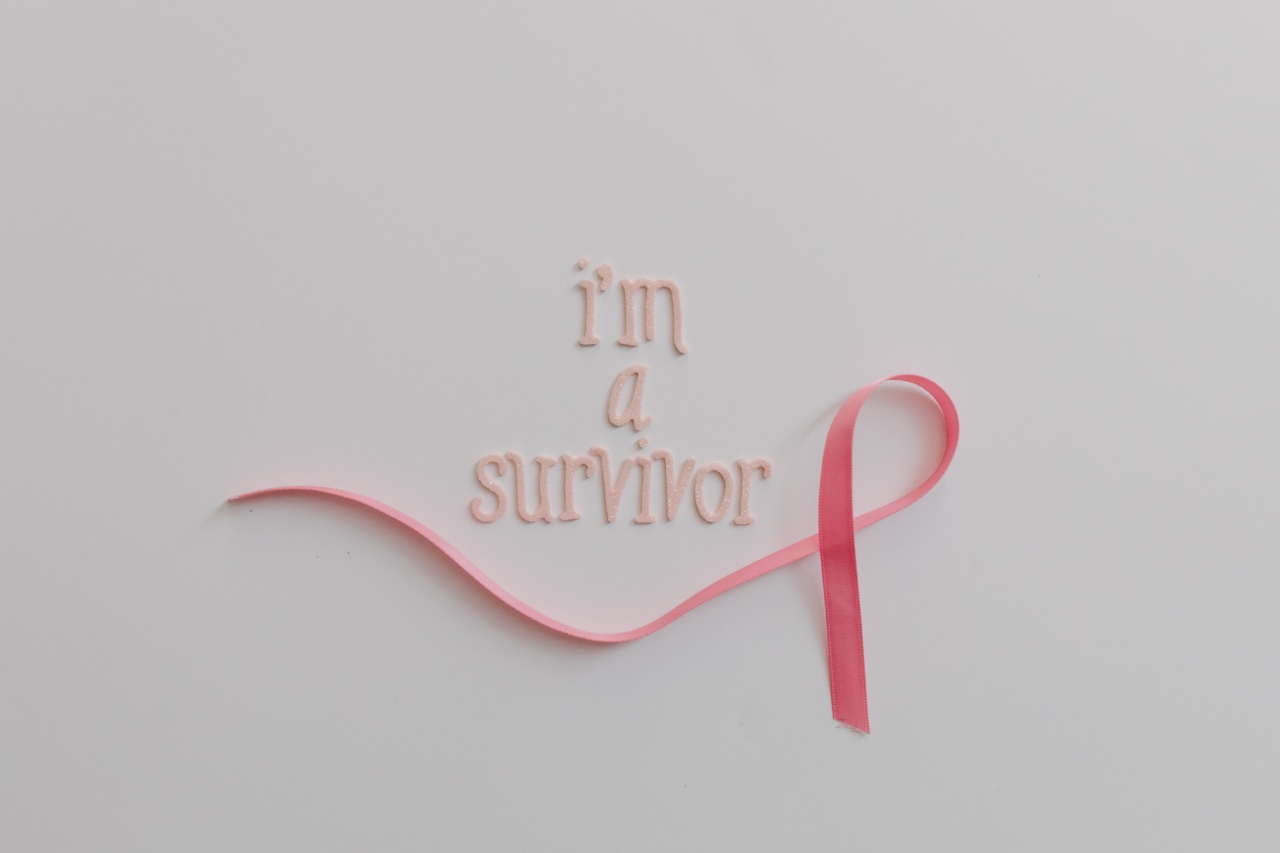Being diagnosed with breast cancer is a life-altering event that can bring forth a whirlwind of emotions and challenges.
However, it is important to remember that life after breast cancer is filled with hope, resilience, and the opportunity for personal growth. In this article, we will explore the journey of overcoming the battle with breast cancer and discuss how survivors can navigate through the various aspects of their post-cancer lives.
Emotional Healing and Support
The emotional toll of breast cancer can be immense. Many survivors experience a wide range of emotions including fear, anxiety, sadness, and anger. It is crucial to acknowledge and address these emotions in order to facilitate the healing process.
Seeking professional help such as counseling or therapy can provide survivors with a safe space to express their feelings and develop coping mechanisms. Additionally, connecting with support groups or engaging in online communities specifically for breast cancer survivors can offer a sense of belonging and understanding.
Physical Recovery and Rehabilitation
After completing treatment, survivors often face physical challenges that require careful attention and rehabilitation.
Surgical procedures, such as mastectomy or breast reconstruction, may result in changes to one’s physical appearance and require time to adapt both emotionally and physically. It is important for survivors to work closely with their healthcare team, including physical therapists and nutritionists, to develop personalized recovery plans.
These plans may include exercises to regain strength and flexibility, as well as guidance on managing potential side effects of treatment.
Healthy Lifestyle Choices
Adopting and maintaining a healthy lifestyle is paramount to the well-being of breast cancer survivors. This includes following a balanced diet that is rich in fruits, vegetables, whole grains, and lean proteins.
Regular exercise, such as brisk walking or yoga, can not only improve physical fitness but also aid in managing stress and reducing the risk of recurrence. Prioritizing self-care activities, such as getting enough sleep, practicing relaxation techniques, and engaging in hobbies, can help survivors restore a sense of normalcy and balance in their lives.
Building a Strong Support System
Surrounding oneself with a strong support system is crucial in navigating life after breast cancer. Family, friends, and loved ones can play a vital role in providing emotional support, helping with daily chores, and being a listening ear when needed.
Open and honest communication is key in expressing one’s needs and boundaries to ensure that the support system is truly beneficial. Additionally, connecting with other survivors or participating in breast cancer support groups can offer a unique sense of camaraderie, understanding, and shared experiences.
Body Image and Self-Esteem
Breast cancer and its treatments can profoundly impact a survivor’s body image and self-esteem. The physical changes that occur, such as hair loss, surgical scars, or the loss of breasts, may affect how a survivor perceives themselves.
It is important to remember that beauty and femininity extend far beyond physical appearance.
Engaging in activities that promote self-love and self-acceptance, such as practicing affirmations, participating in art therapy, or connecting with others who have experienced similar body changes, can help survivors regain confidence and embrace their new bodies.
Intimacy and Relationships
Intimacy and relationships may undergo changes after a breast cancer diagnosis. Physical discomfort, fatigue, or changes in body image may impact a survivor’s sexual well-being.
Open and honest communication with partners is essential, as it allows for understanding and support. Exploring alternative forms of intimacy and seeking guidance from healthcare professionals or therapists who specialize in sexual health can help survivors navigate this aspect of their post-cancer lives.
Remember, it is normal for relationships to undergo adjustments, and with patience and understanding, both partners can find new ways to connect emotionally and physically.
Returning to Work or Establishing New Roles
Returning to work after breast cancer treatment can bring about mixed emotions. While it may signify a return to normalcy and routine, it can also be a source of anxiety and stress.
Survivors should communicate with their employers about any necessary accommodations or modifications to ensure a smooth transition. For some, this may also be an opportune time to reflect on their career paths and consider new avenues or roles that align with their changed perspectives and priorities.
Post-Traumatic Growth and Finding Meaning
Surviving breast cancer can lead to an increased appreciation for life, a deeper understanding of one’s own strength, and the opportunity for personal growth.
Many survivors report experiencing post-traumatic growth, which involves finding new meaning, setting new goals, and discovering a renewed sense of purpose. Engaging in activities that bring joy, pursuing interests that were previously put on hold, and connecting with others who have faced adversity can foster personal development and a profound appreciation for life’s everyday blessings.
Follow-Up Care and Monitoring
Regular follow-up care and monitoring are essential for breast cancer survivors to ensure long-term well-being and detect any potential recurrences or complications.
This may involve periodic visits to oncologists or other healthcare professionals, as well as undergoing routine screenings and tests. Staying proactive about one’s health and adhering to the recommended follow-up care can provide survivors with peace of mind and empower them to take charge of their own health.
Conclusion
Life after breast cancer is a remarkable journey of resilience, hope, and personal growth.
While the battle may be challenging, survivors can navigate through emotional and physical recovery, adopt healthy lifestyle choices, build strong support systems, embrace changes in body image, cultivate intimate relationships, and find new meaning and purpose. By prioritizing self-care, seeking support, and staying proactive in follow-up care, breast cancer survivors can truly overcome the battle and thrive in their post-cancer lives.





























